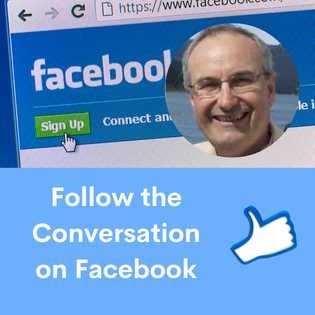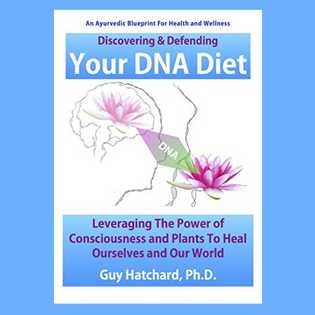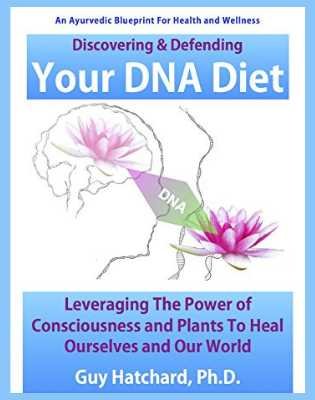We receive snippets of information from time to time and it now appears there are cracks developing in the solid wall of New Zealand COVID-19 vaccine defences. Some frontline medical staff are confronting the obvious.
This article is also available as a PDF to download, print, and share and as an audio version.
We have had first hand reports that some cardiac surgeons are quietly advising cardiac bypass patients to refuse boosters if they want to stay healthy. At a recent hospital meeting of Auckland cardiologists, a participant told the meeting that the time has come to admit the source of the current epidemic of heart disease. The spike protein generated by the mRNA COVID-19 vaccines is a cardio toxin. As a result, cardiology waiting rooms and hospital cardiac wards are full, especially with young patients, and the problem is not going away. It is getting worse.
The scale of the problem is off the charts, and it is crying out for a public discussion. So what is stopping this? The executive arm of our medical system is avoiding the obvious implications of key health data. The New Zealand Medical Council is still prosecuting doctors who cautioned patients about possible adverse effects of the COVID-19 vaccine in the early days of the pandemic. This has created an ongoing atmosphere of fear among practising doctors, they are reluctant to come forward with their doubts, for fear of losing their jobs and professional registration.
A follow up set of questions probing the OIA which revealed a ten fold increase of chest pain presentations to A&E among the under forties has so far met with a blank wall. One request was submitted on 2nd October, and under Official Information Act request (OIA) legislation, a reply should have been forthcoming by now. Instead Health New Zealand has written to say “Health New Zealand needs more time to make a decision on your request”.
Unfortunately, the delay in the publication of health data is not limited to cardiac illness. Figures for cancer incidence have not been published since 2020—an unheard-of situation. Normally, cancer data is published annually. This is an important tool which helps in the early detection of any safety signals. An OIA request for information on cancer incidence covering the years 2020 to 2024 has been refused by Health New Zealand on the grounds that the information would compromise patient confidentiality. In fact, anonymised data collated by year cannot be traced back to any individual, pre-pandemic the publication of such data was routine.
Other countries, however, are releasing cancer figures, and they are damning. A recent conference presentation by James Royle a UK consultant oncology surgeon paints a very concerning picture. He reports and graphs a sudden change in the rate and patterns of cancer presentation dating back to 2021, which has continued to accelerate during the last two years. This involves the sudden onset of aggressive, often incurable stage 4 cancers exhibiting a novel biology, so called turbo cancers. The trend is particularly evident in bowel cancer stats. These are also affecting young people not previously considered at risk.
You can see clips of Royle’s presentation at an Irish medical conference interspersed in this summary by Dr. John Campbell. Royle asserts there is a causal association between the COVID-19 vaccine rollout and cancer incidence that is supported by both temporal association and his reference list of 13 biomolecular cancer mechanisms known to be triggered by mRNA vaccines. Royle systematically discounts the effect of other causal factors being promoted by poorly informed media such as poor diet, lockdowns, and genetics. They don’t fit the novel cancer data pattern and presentation types being seen by oncologists.
Unusually, a single cause (mRNA vaccination) has been identified for two normally unrelated conditions—heart disease and cancer. Why is this? The answer lies in the novel vaccine technology being employed. Uniquely, mRNA vaccines cross the cell membrane and interfere with genetic mechanisms designed to protect our health. Up until now, we have in many ways taken our health for granted. Unaware that trillions of immune actions are automatically initiated by our cellular-based genetics every single minute of the day and night to keep our body in balance and preserve our health. mRNA vaccines lock billions of cells out of this process and repurpose their genetic and immune functions to produce foreign toxic spike proteins. This is enough to trigger multiple immune failures, some of which can have fatal consequences.
At the outset of the pandemic, our health professionals were, for the most part, unaware of the published evidence documenting the dangers of mRNA vaccines. They were bombarded with ‘safe and effective’ PR messages. They were mandated to participate both personally and in their practice. They were threatened with serious consequences if they asked questions and warned against doing their own research. They received generous financial compensation if they towed the government line.
It appears that the executive level of Health New Zealand management is still rigorously enforcing these procedures, even as frontline medical professionals are becoming aware of the obvious—mRNA vaccines don’t work and they are seriously degrading public health. Until some brave doctors decide to speak up, we will remain stuck in an information blackout.
After five long COVID-19 years, it is at last time to take a win
The result of the US election has momentous implications for the COVID-19 safety debate here in New Zealand and around the world. President Trump has appointed Robert F Kennedy Jnr. (RFK) leader of a program to Make America Healthy Again (MAHA). In his victory speech last night, Trump promised to give RFK “wide latitude” to fix America’s health problems. In an opinion piece for the Wall Street Journal in September RFK outlined the beginnings of a program to tackle the chronic disease epidemic affecting the US, especially the youth, by among other things:
- Unshackling the health system from the unethical and overtly commercially predatory straight jacket of the pharmaceutical industry.
- Closing the revolving doors and conflicts of interest which enable drug manufacturers to unfairly influence the regulatory process.
- Reforming the regulations on medical drug advertising which has prejudiced the media in the United States and New Zealand against open debate of drug safety.
- Reforming regulations governing pesticide and chemical use.
- Educating people about the dangers of a highly processed diet and removing the crop subsidies which make highly processed foods so cheap.
- Funding research on preventive, alternative and holistic approaches to health and requiring doctor training to include such information.
RFK also plans to cease fluoridation of water. The key to understanding Kennedy’s approach is his grasp of independent evidence-based medicine. The relief and hope that this brings to COVID-19 campaigners is exemplified in this election night post from Robert Malone. How far will Kennedy go in righting the wrongs of the COVID-19 era and the vaccine mandates? We are not sure. Some, like Steve Kirsch, are already laying out their stall for comprehensive Covid vaccine reform. We join Steve in wishing for a very broad brush.
The main challenge we face in our distant corner of the world is a public health information gap
New Zealand has been following the lead of the US government on COVID-19 policy, even pushing ahead of it in some cases. Pfizer COVID-19 vaccines come from America and were approved by the US CDC. Pfizer’s contractual immunity from prosecution stems directly from US vaccine immunity laws. For the record, the Harris campaign and the Democrat Party required that all their staffers and volunteers be up to date with COVID-19 shots and boosters. The Biden administration also made it a mandatory condition of public funding of hospitals that employees, including doctors, were fully COVID-19 vaccinated. Therefore, we appear to have dodged a bullet.
We have to decouple from reliance on prior US vaccine policy and misinformation, ask some serious questions and have public discussions. Mistakes were made and these have to be corrected. Continuing efforts to stop any public discussion of the official health data here in New Zealand is adding up to criminal folly.
So, will the outcome of the US election affect our health discussions here in New Zealand? Yes, we believe so. The blocks to public discussion in America and on the world stage will be lessened if not removed. New Zealand is not so isolated that this will not trickle through our borders into the public narrative.






